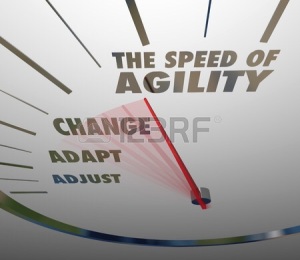About six years ago, I identified a young man called Jeff, who was in his penultimate year of an undergraduate IT degree at Makerere University in Uganda. Jeff took time off from the university to do various IT jobs for my employer Build-Africa Uganda. My gut-factor told me there was something unique in Jeff and with that, I engaged him in a conversation laden with questions. The rest is history and together with Jeff, we accomplished many simple yet powerful IT products. As well, today Jeff is a successful and increasingly respected IT junkie.
This morning, I engaged Jeff in a conversation on Whatsup, challenging him on certain aspects of his work. His response was telling and raises fundamental questions about Uganda’s education system. On an even more important note, the Whatsup chat made me ask how employers measure and reward excellence.
The education system In Uganda teaches follower-ship, linearity and order – so, as long as you deliver to what has been discussed and agreed, you should be considered good enough and rewarded for your handwork. The latter is true, even for individuals like Jeff, that in my opinion are incredibly good at what they do for a living.
Below is a transcript of the Apollo/Jeff Whatsup chat this morning (verbatim):
A: I hope you are taking your notes – you know I think on the go
J: Heehe I know, that is why other guys fear working with Gabazira
J: He (Gabazira) introduces something new every day
J: He thinks on the go
J: And in design u need to know all product deliverables before you even start
A: Haaaaa – reason those who work with Gabazira excel in jobs – and show off gabazira’s products to friends in America & UK
J: LoL
In very simple terms, Jeff is telling me to: define upfront what I want from him, allow him a lot of time, not introduce new ideas once work is in progress, and for that, he will deliver a very high-quality product.
On the flip side, present new work/thinking, ask for changes to process/final product, and Jeff’s Uganda education paradigm manifests itself. Jeff is good at coding and systems thinking, but likes order, linearity, and certainty in his work. I have tried to get myself inside Jeff’s brain and this what I see him thinking like: ‘you (Gabazira) gave me the ‘ORDER’ and I am doing my level best to follow and execute it. How do you then change my terms halfway the journey?’. In effect, Jeff is doing my work, and delivering to my very specific ask. Asking him questions is equivalent to the task-master appearing confused and uncertain of his ask. Given Jeff’s liking for linearity and order, changing course midway spells uncertainty and failure for him. If Jeff was agile and asking himself all the questions I am asking, I am confident he would avoid most of my questions, plus become very effective at his work.
In all fairness, I do not blame Jeff for the above Whatsup chat, as that is what he was taught at school. However, we can all play our part in helping the youth in Uganda and its immediate neighbourhood, to become more agile in their ways. We should not give up and claim it is mission impossible given the archaic education system.
The good news for Jeff is that on a recent trip to the USA and England, he showcased some of his work. He quickly texted me from afar, boasting (in a good way) how his peers were marvelling at his work and even wondered if it were his. I was quick to remind Jeff that when one stands the demands of a hard and idea-shifting task-master like Gabazira, they tend to learn a lot as well as excel at jobs.
Let me and you start a post-formal education community of practice, that teaches agility. I know that it is difficult work to accomplish your daily brief as leader, and at the same time teach others a particular aspect of productivity. Moreover, an aspect that I know many of you will remind the world is got at school and not work. It is like doing two jobs in one. However, aren’t leaders servants of those they lead?
To all you fellow leaders, let us put coaching and mentoring for agility at the forefront of our work. I hope that we will help our teams to: work SMARTER yet, in an ever faster manner, taking risk (I have at times called this ‘gambling’), asking the right questions, changing direction if the answers to the questions require one to do so, abandoning ship if there is rationale for that, staying the course, and never giving up.
On a daily basis, I preach to the young men and women that I work with the need for agility at work. I link performance management rating and promotion to one’s agility at work. Unfortunately, I am constantly faced with opposite currents, augmented 24/7 but an education system that preaches follower-ship, task order, and continuity.
My takeaway: There are so many Jeff’s out there, some perhaps not as moulded as our Jeff. Do you understand the extent AGILITY or lack of may determine Jeff’s success or failure?

Leave a comment